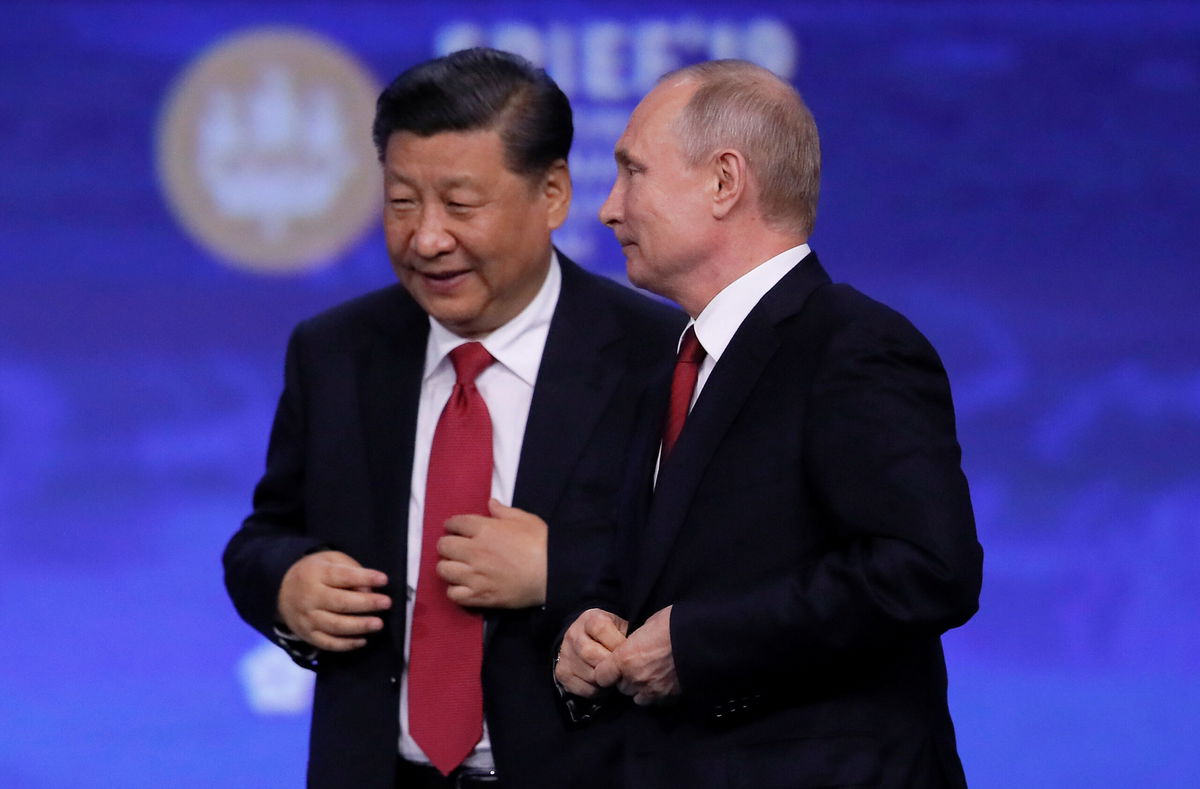Putin concedes China has ‘questions and concerns’ over Russia’s faltering invasion of Ukraine

Russian President Vladimir Putin
By Nectar Gan, CNN
Russian President Vladimir Putin on Thursday praised China’s “balanced position” on the Ukraine war, though he conceded Beijing had “questions and concerns” over the invasion, in what appeared to be a veiled admission of their diverging views over the protracted military assault.
Putin made the comments when meeting Chinese leader Xi Jinping in person for the first time since the invasion at a regional summit in Uzbekistan, days after Russia suffered a series of major military setbacks in Ukraine. Russian troops are retreating en mass, having lost more territory in a week than they captured in five months.
China has so far refused to outright condemn Russia’s unprovoked attack on Ukraine while stepping up economic assistance to its neighbor, boosting bilateral trade to record levels in a boon to Russian business amid Western sanctions.
“We highly appreciate the balanced position of our Chinese friends in connection with the Ukrainian crisis. We understand your questions and concerns in this regard,” Putin said in an opening speech of the meeting. “During today’s meeting, of course, we will explain in detail our position on this issue, although we have spoken about this before.”
Xi said China would “work with Russia to extend strong mutual support on issues concerning each other’s core interests” and “play a leading role in injecting stability and positive energy into a world of change and disorder,” according to a readout from the meeting provided by the Chinese Ministry of Foreign Affairs.
Xi also said he appreciated “Russia’s adherence to the one-China principle and stressed that Taiwan is a part of China.”
The two authoritarian leaders have emerged as close partners in recent years, propelled by growing conflict with the West and a strong personal bond.
China has offered tacit support for Russia’s actions in Ukraine, while Moscow has backed Beijing and criticized Washington over US House Speaker Nancy Pelosi’s visit to Taipei in August. Beijing responded to her trip with unprecedented military drills around the self-governing democratic island, which it claims as its own territory.
The White House sought to downplay the meeting between Putin and Xi on Thursday, saying Beijing had not yet violated Western sanctions on Moscow nor provided direct material assistance to Russia.
“Our message to China, I think, been consistent: that this is not the time for any kind of business as usual with Mr. Putin, given what he’s done inside Ukraine. This is not the time to be isolated from the rest of the international community, which has largely condemned what he’s doing in Ukraine and not only condemned it, but stepped up to help the Ukrainians defend themselves and their territorial integrity,” National Security Council coordinator for strategic communications John Kirby told CNN.
Kirby said Putin was “very much under strain and stress. In Ukraine, his army is not doing well, and I think it certainly behooves the Kremlin to want to cozy up to Beijing with respect to what’s going on there.”
In their meeting Thursday, Putin condemned the United States for what he said were “provocations” in the Taiwan Strait, and criticized what he claimed were attempts to “create a unipolar world.” Those attempts, he said, have “recently taken an ugly shape and are absolutely unacceptable to most states on the planet.”
The two are holding talks on the sidelines of a summit of the Shanghai Cooperation Organization, a regional security-focused grouping that also includes India, Pakistan and four Central Asian nations.
In a symbolic show of force and unity, Russian and Chinese navies conducted joint patrols and exercises in the Pacific Ocean just hours before their leaders’ meeting, according to Russia’s Ministry of Defense.
At the start of the meeting Thursday, Putin stressed the deepening economic ties between China and Russia, noting bilateral trade exceeded $140 billion last year. “I am convinced that by the end of the year we will reach new record levels, and in the near future, as agreed, we will increase our annual trade turnover to $200 billion or more,” he said.
Putin last met with Xi during a visit to the Chinese capital for its Winter Olympics in February this year. It was at that meeting that the two leaders framed their “no-limits’ partnership, and released a 5,000-word document voicing their shared opposition to the “further enlargement of NATO.”
For Xi, meanwhile, Thursday’s meeting comes as part of his first trip outside of China’s borders in more than two years, and just weeks before he seeks to secure a norm-breaking third term at a major political meeting in Beijing — a move that will cement his status as China’s most powerful leader in decades.
China has turned increasingly inward since the beginning of the pandemic, and continues to maintain a strict zero-Covid policy that limits outbound travel.
Xi’s trip to Central Asia is a return to the world stage and offers him an opportunity to show that despite growing tensions with the West, China still has friends and partners and is ready to reassert its global influence.
Before arriving at the summit, Xi visited Kazakhstan, where he unveiled in 2013 his flagship Belt and Road Initiative, a massive infrastructure project that stretches from East Asia to Europe.
In a meeting with Kazakh President Kassym-Jomart Tokayev on Wednesday, Xi said China would like to partner with Kazakhstan to “remain pioneers in Belt and Road cooperation.”
Xi also told Tokayev that “China will always support Kazakhstan in maintaining national independence, sovereignty and territorial integrity,” Chinese state media reported.
The Chinese leader traveled to Uzbekistan on Wednesday evening and met with Uzbek President Shavkat Mirziyoyev. He also met the presidents of Kyrgyzstan, Tajikistan and Turkmenistan Thursday.
The-CNN-Wire
™ & © 2022 Cable News Network, Inc., a Warner Bros. Discovery Company. All rights reserved.
CNN’s Anna Chernova, Betsy Klein and Ivana Kottasová contributed to this report.